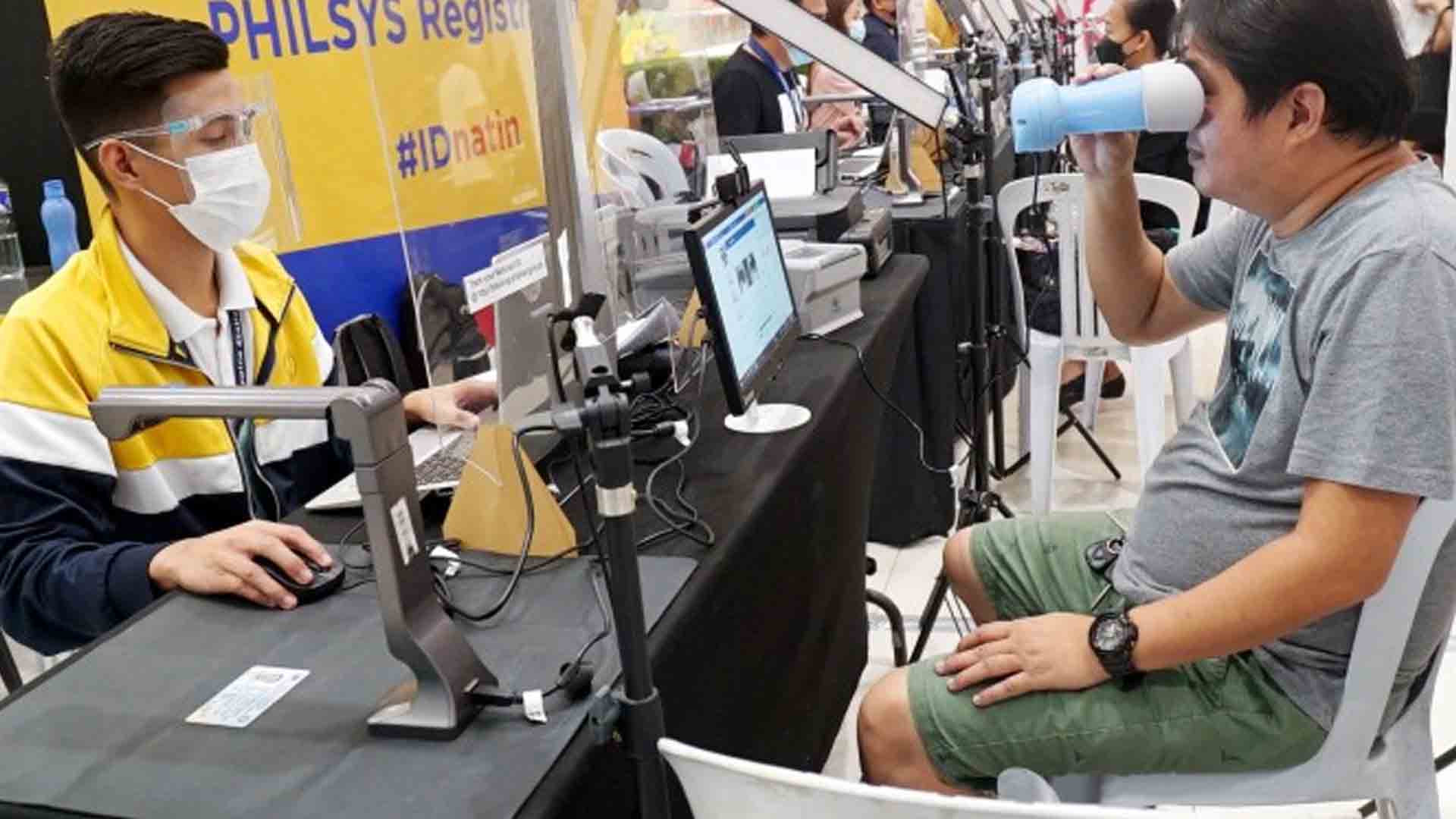President Ferdinand Marcos Jr. has ordered the faster distribution of the national IDs under the Philippine Identification System (PhilSys) to enable Filipinos to use it by 2023.
This developed after his meeting with National Economic and Development Authority (NEDA) Director-General and Socioeconomic Planning Secretary Arsenio Balisacan via teleconferencing on Wednesday.
“Sa ating pagpupulong kasama si NEDA Director-General Arsenio Balisacan, tinalakay kung paano mapapabilis ang pag-imprenta at distribusyon ng National ID cards upang magamit na ng ating mga kababayan simula sa unang bahagi ng 2023 (During our meeting with NEDA Director-General Arsenio Balisacan, we discussed how we could speed up the printing and distribution of National ID cards to allow our countrymen to use it on the first half of 2023),” Marcos said in a Facebook post on Thursday.
In a Palace press conference, Press Secretary Trixie Cruz-Angeles said the seamless implementation of PhilSys is “essential” to ensure the country’s economic recovery amid the prevailing coronavirus disease 2019 (Covid-19).
Cruz-Angeles issued the statement, as she noted that PhilSys registrants would be given formal access to banking and other financial services.
“Bahagi nga po iyan ng ating economic recovery. So, necessary kasi ‘yung national ID. Essential siya lalung-lalo na doon sa banking systems, sa pagtatayo ng maliliit na negosyo or kahit anumang negosyo. So sa credit system mahalaga rin po ‘yung national ID system (The national ID system is necessary because that is part of our economic recovery. It is essential, especially in terms of banking systems or establishment of any business, including small businesses. The national ID system is also important for credit system),” she said.
Over 13.7 million PhilSys IDs have already been delivered nationwide, the Philippine Postal Corporation (Post Office) said Wednesday.
The figure is equivalent to 94 percent of the 14.5 million Phil IDs turned over for dispatch, as of June 30.
Only six percent or 774,650 ID cards are being delivered by the Post Office in far-flung areas of the country, Postmaster General Normal Fulgencio said.
Republic Act (RA) 11055 or the PhilSys Act, signed by former president Rodrigo Duterte in August 2018, mandates the issuance of a national ID that will serve as a valid proof of identity for all Filipino citizens and resident aliens.
The national ID, which is given for free, will eventually replace all other government-issued IDs, except the passport, driver’s license, and UMID ID.
The PhilSys collates the Phil ID holder’s full name, sex, date and place of birth, blood type, and address. It will also indicate if a person is a Filipino or a resident alien.
The Phil ID also contains the holder’s front-facing photo, full set of fingerprints, and an iris scan.
The disclosure of one’s marital status, mobile number, and electronic mail address is optional.
RA 11055 was signed to make government and private transactions simpler and faster.
The law tasks the Philippine Statistics Authority (PSA) as the implementing agency responsible for the overall planning, management, and administration of PhilSys, the government’s central platform for all citizen and resident aliens of the Philippines.
In January this year, the PSA partnered with state-run Land Bank of the Philippines to support the national government’s agenda of financial inclusion by providing PhilSys registrants with their own transaction accounts.
To hasten delivery of basic services
Davao City Rep. Paolo Duterte called on the PSA and the Bangko Sentral ng Pilipinas to accelerate the implementation of PhilSys project to further reduce red tape and haste the delivery of basic services and financial aid to poor families.
He said the national ID system would not only make the delivery of financial assistance swift and efficient, but also help weed out “false” beneficiaries and improve social protection targeting.
“We urge the BSP and PSA to come up with a good catch-up plan to speed up the implementation of this vital project,” Duterte said in a statement on Thursday.
Duterte said a PSA plan to issue printable versions of the national ID with a corresponding mobile ID that can be accessed through the PhilSys app could be a step in fast-tracking the full implementation of the project.
He, however, stressed that PSA should continue printing the physical ID cards considering that around PHP4.84 billion has been allocated for the PhilSys project under the 2022 national budget.
“A well-maintained national ID system will help the government clean up its database of beneficiaries of social protection programs, such as the 4Ps (Pantawid Pamilyang Pilipino Program). Even those who dupe the system by getting senior citizen ID cards even though they are not yet qualified to avail of the benefits for seniors will be weeded out,” Duterte said. (PNA)







